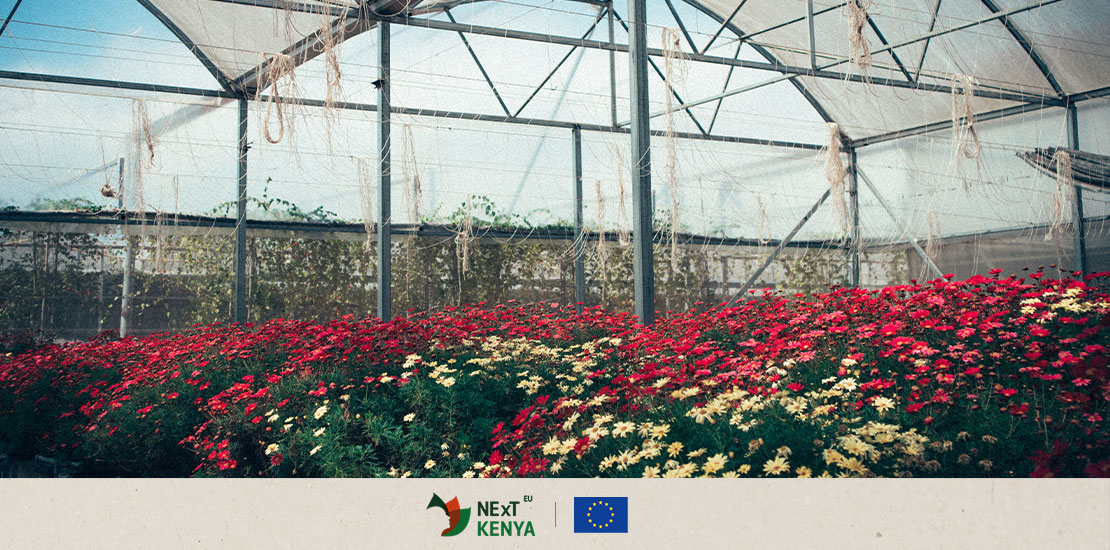NExT Kenya study on bottlenecks in the horticultural sector is supported by evidence from recent NHT mission
- 13/07/2022
- Posted by: Sandra Borma
- Category: Kenya, News

On 5 July, at a meeting with representatives of Kenya’s horticultural public and private sectors, Dr Kedera, NExT Kenya programme coordinator, presented the results of a study on the bottlenecks affecting the competitiveness of Kenyan horticultural exports.
These results are the fruit of more than a year’s work, which involved local consultants, multiple exchanges with stakeholders in Kenya and Europe and the competent authorities, as well as methodological and coordination work by COLEACP’s Markets Insights department.
What did the study reveal?
No major revelations, but many well-founded confirmations regarding the factors blocking the expression of Kenya’s full export potential. These range from a lack of agricultural inputs needed for the continuous improvement of sustainable agricultural practices; through the continuous need for capacity building, especially to support smaller exporters to respond to constraints linked to the ongoing evolution of European market requirements; to an urgent need for the optimisation of logistics via sea freight; and for transparency along the value chain via monitoring systems.
The study confirms that Kenya’s horticultural exports to the EU (fruit and vegetables, flowers) are a success story that has been key to the continued development of the country’s agricultural economy. But challenges and threats have increased in international markets, most recently with Brexit, Covid-19, and now the war in Ukraine.
At the same time, other suppliers to the European market competing with Kenya, such as Colombia, Peru, Ecuador and Egypt, have benefited more than Kenya from the growth of the EU market, revealing the better performance of these Kenyan competitors on the EU market.
Kenya’s image for flowers and vegetables is positive among buyers. This is less so for fruit, such as avocado and mango, where even if Kenyans’ efforts are recognised, progress remains to be made in terms of product consistency and quality.
The study’s value chain approach identified 47 bottlenecks, from which recommendations were drawn up for each link in the value chain and prioritised according to their impact on the sector and an estimate of the feasibility of remedying them.
The bottlenecks identified for the flower sector illustrate the urgent and important challenges for the whole sector: the issue of SPS notifications on entry to the European market; integration of the European Green Deal both as a challenge and as an opportunity to develop new sustainable market segments in the EU; and finally the need to communicate to consumers about the societal and environmental sustainability of horticultural production.
During the meeting on 5 July, Clement Tulezi, Chairman of Kenya’s National Horticulture Task Force (NHT), reported on the main results of the NExT Kenya mission in France, Belgium, the Netherlands and Germany during March and April 2022. The Kenyan delegation consisted of members of the NHT, key agricultural regulatory agencies, the Kenyan mission to Belgium and the Netherlands, private sector representatives and development partners. Meetings with private and public stakeholders included the European Commission and the European horticultural import industry. Feedback from the mission confirmed and illustrated the results of the study: a need for regular data on the sustainability of the Kenyan horticultural sector; a decrease of SPS notifications on market entry; positive communication on Kenyan production, etc.
The challenge for the NHT is now to turn these recommendations into a roadmap and action plans, as agreed by stakeholders on 5 July. The detailed and practical NExT Kenya bottleneck study should be very useful in this respect.
These activities are implemented by COLEACP and supported by the NExT Kenya (New Export Trade) programme, established in collaboration with the EU Delegation in Nairobi and Kenyan stakeholders.
